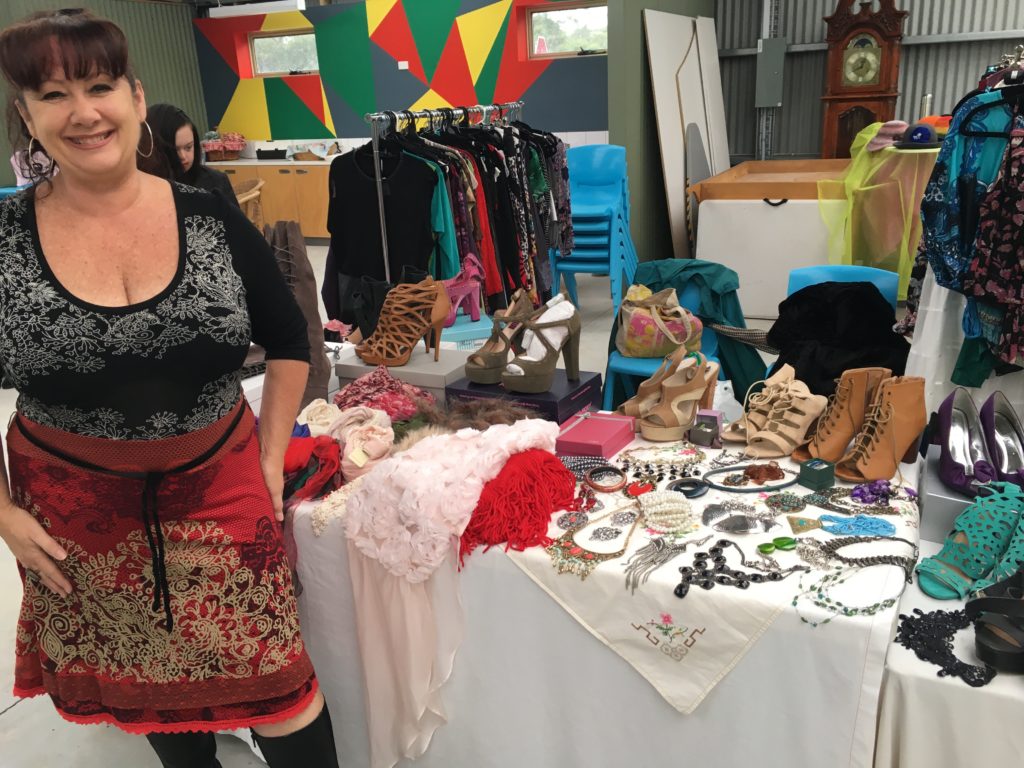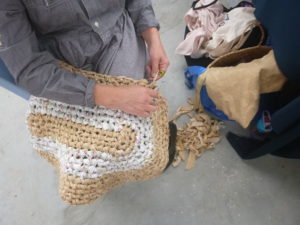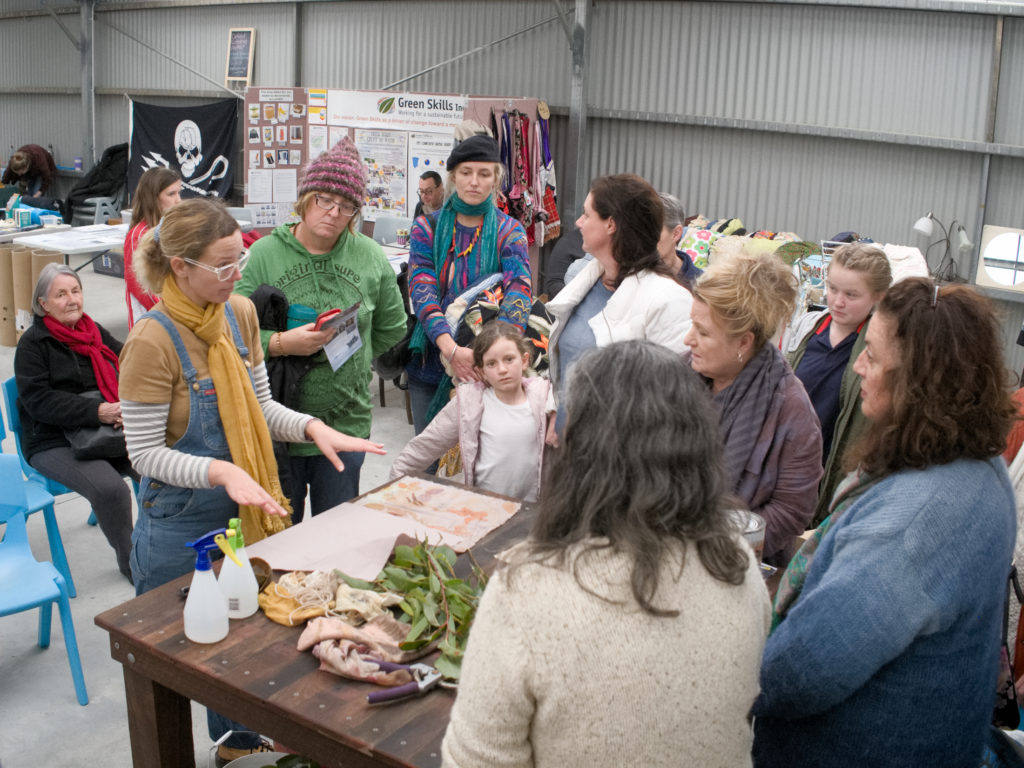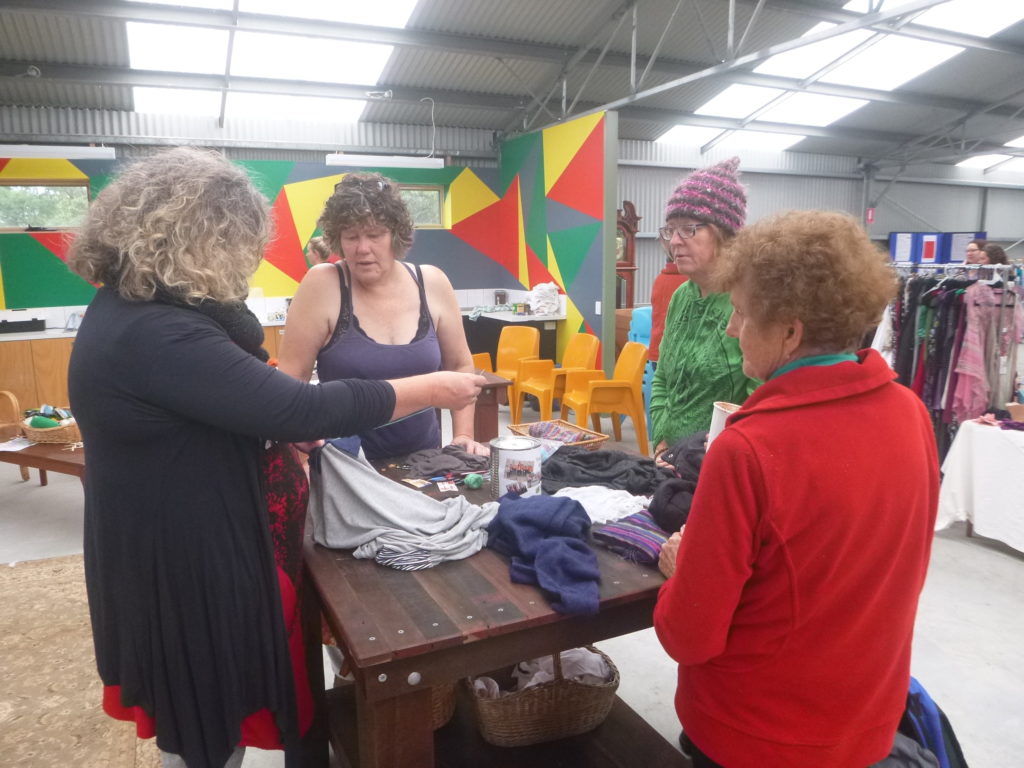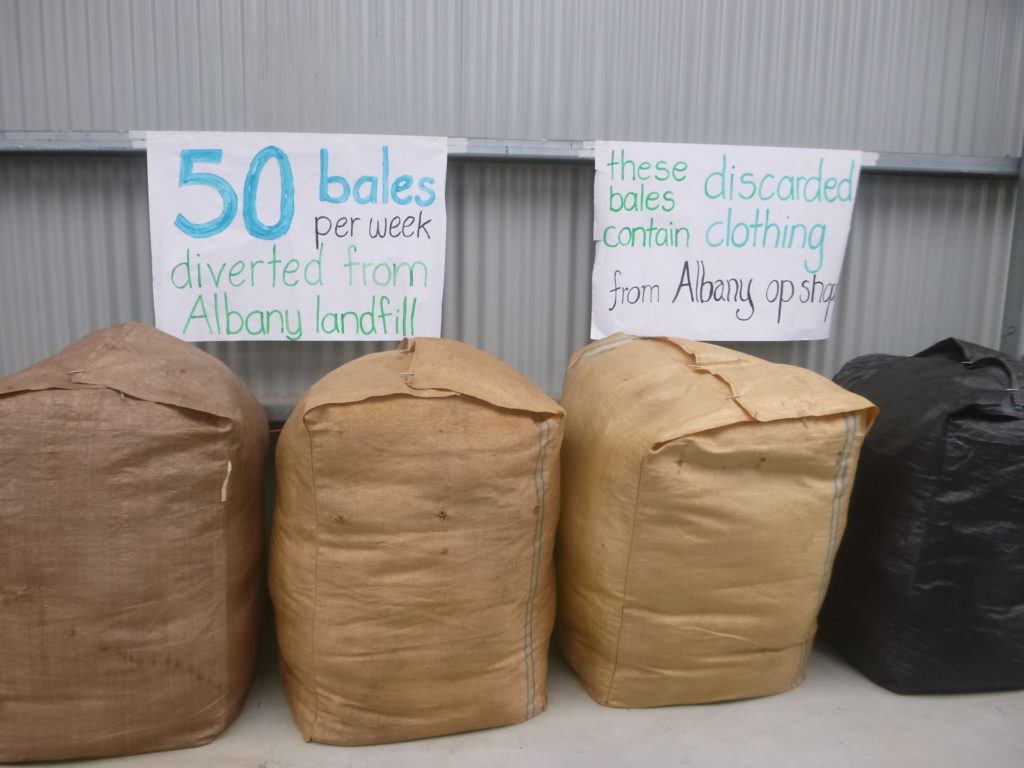by Basil | Sep 10, 2019 | Green Skills Inc. - Sustainability Non-Profit
Appreciating some magnificent contributors to our Denmark-Kwoorabup community
Here Green Skills takes the opportunity to thank and appreciate those volunteers and groups who support the Denmark Community Garden and who are consistently marvellous. This is a tribute to them and all the many quiet people who give heaps to our town and our world. Thank you
Support to establish the garden has come from Green Skills, the Denmark CRC, Kwoorabup Denmark Transition Town Network, the Foundation for Rural and Regional Renewal, the Denmark Community Windfarm Group Sustainability Fund, Metroof, Thornton’s Hardware & Mitre 10, the Denmark Men’s Shed, contractors, other groups & volunteers
Basil
Green Skills Denmark 98483110
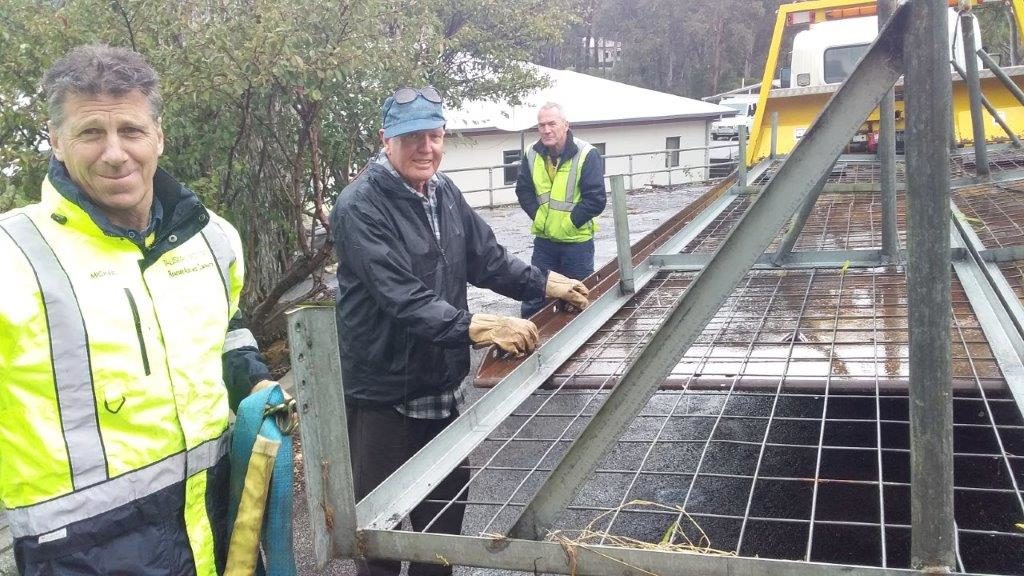
Michael (of RAC rescue fame), Don and Greg. Last Wednesday in the pouring rain, Michael volunteered his truck and skills to help move some big shadehouse benchtops to the DCG
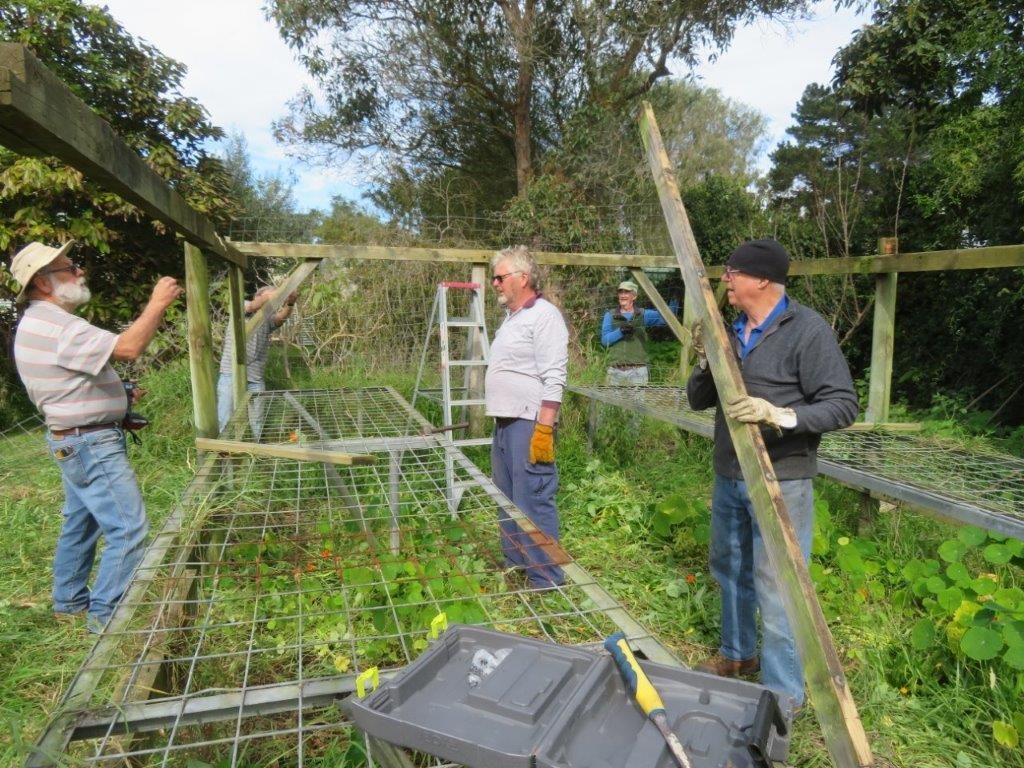
The Denmark Men Shed guys – rough sense of humour but true legends. Here they are helping relocate a shadehouse.
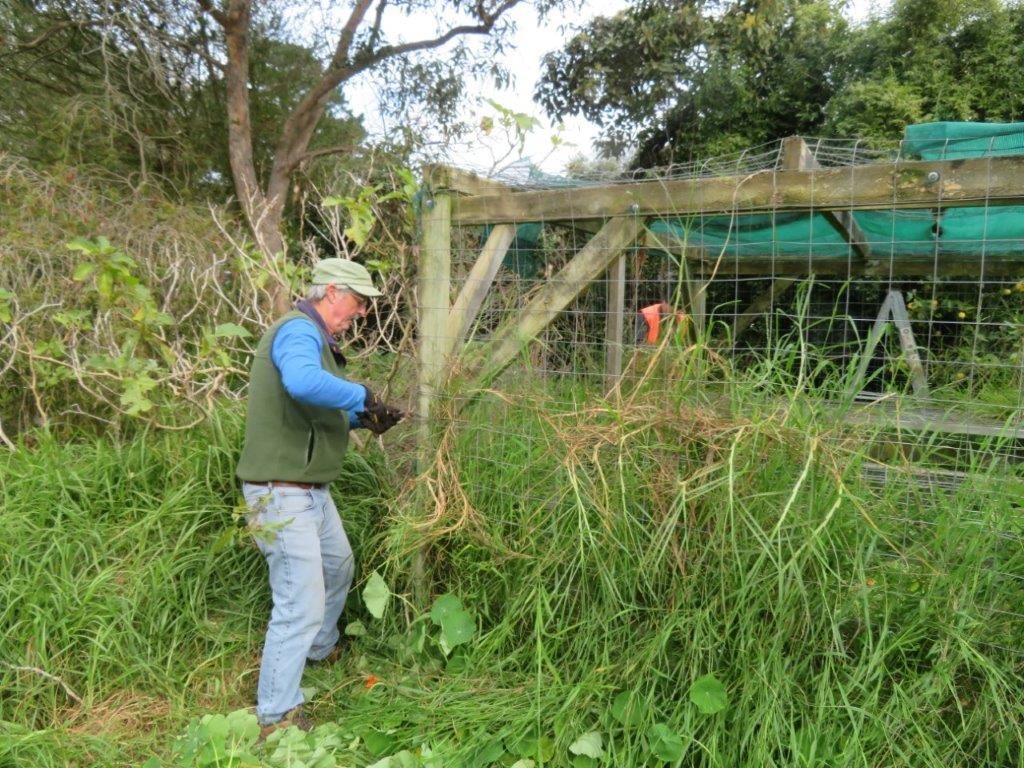
Greg helping relocate a shadehouse.. a true Aussie stalwart !
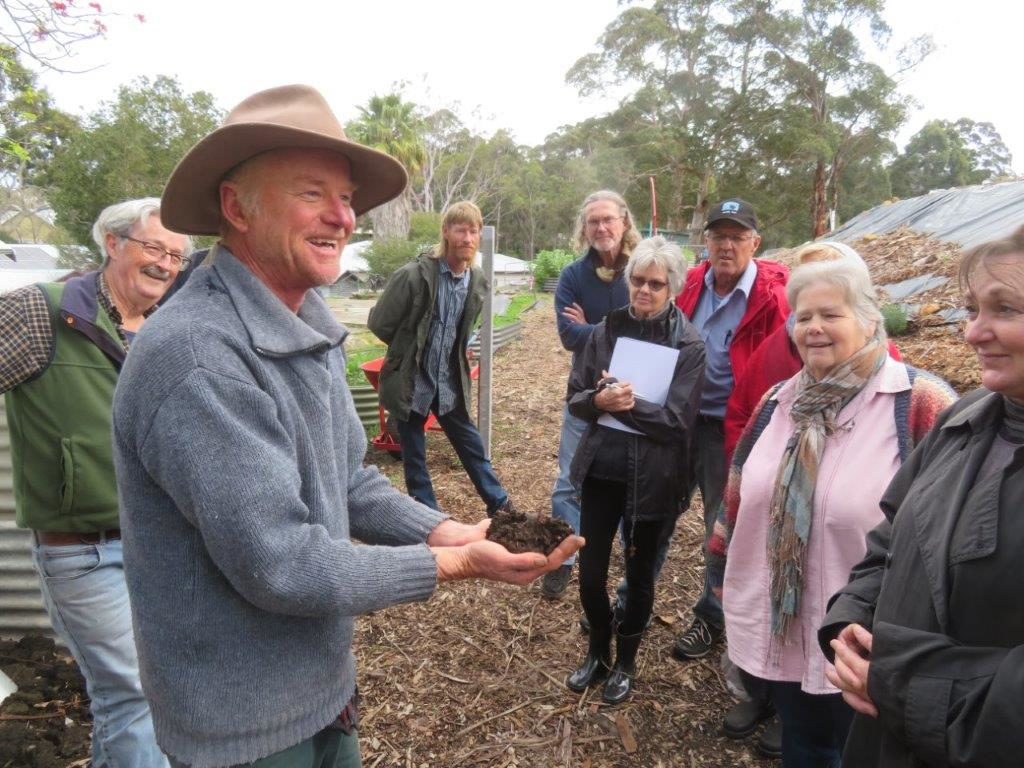
Neal – Denmark’s garden maestro and enthusiastic teacher of horticultural knowledge
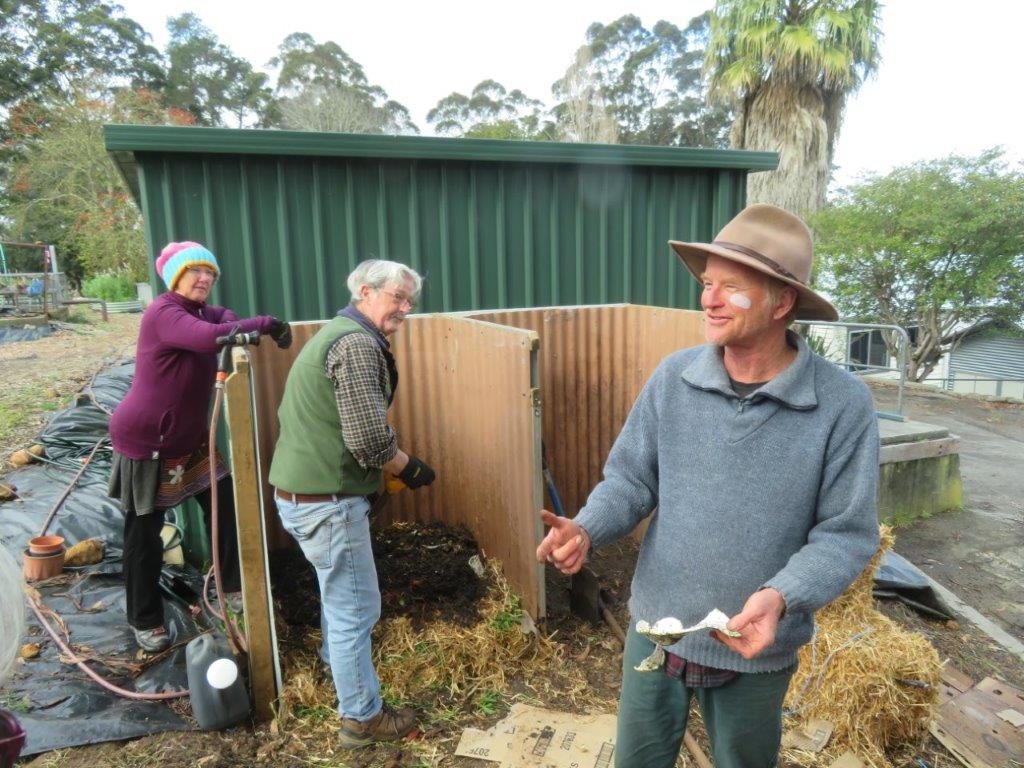
Shirle, Greg and Neal at our composting workshops.. all deeply feeling beings who have green hearts and fingers
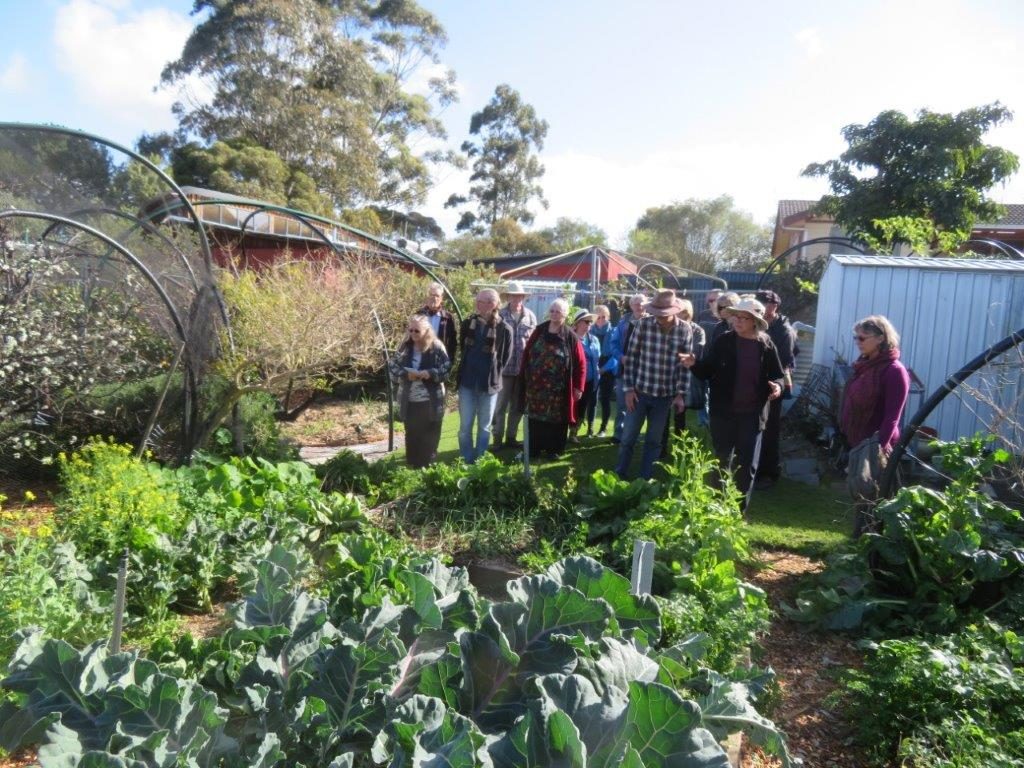
Lucia guiding the group through her spectacularly productive garden
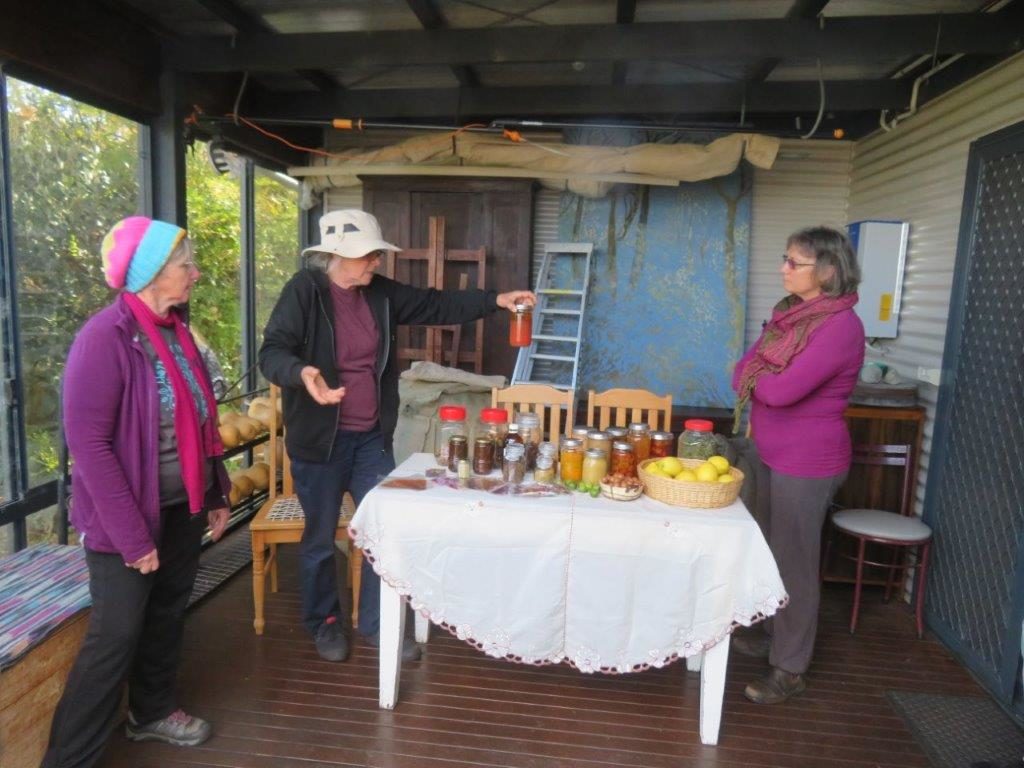
Lucia (centre) with her garden produce, Dawn (right),another dedicated volunteer and contributor to not just the community garden but much more.
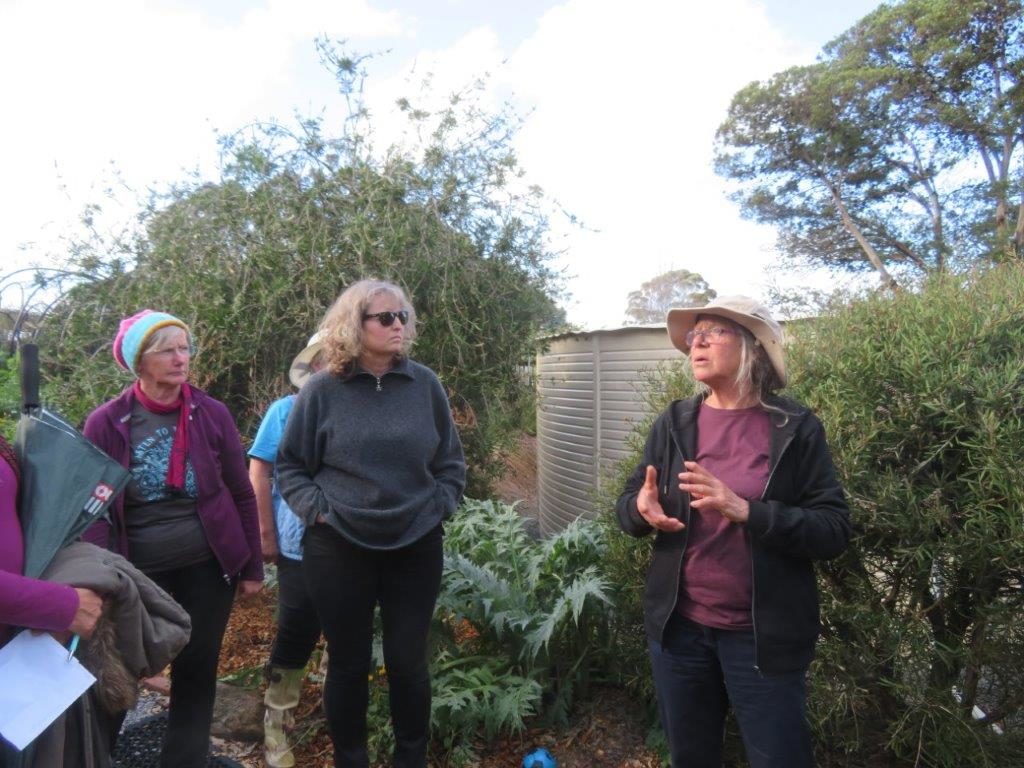
Lucia( right) who let us loose in her wonderful home garden last weeke\nd – and Petra ( centre) who does a fabulous job of helping drive the Denmark Community Resource Centre, and Shirley ( healer and giver)
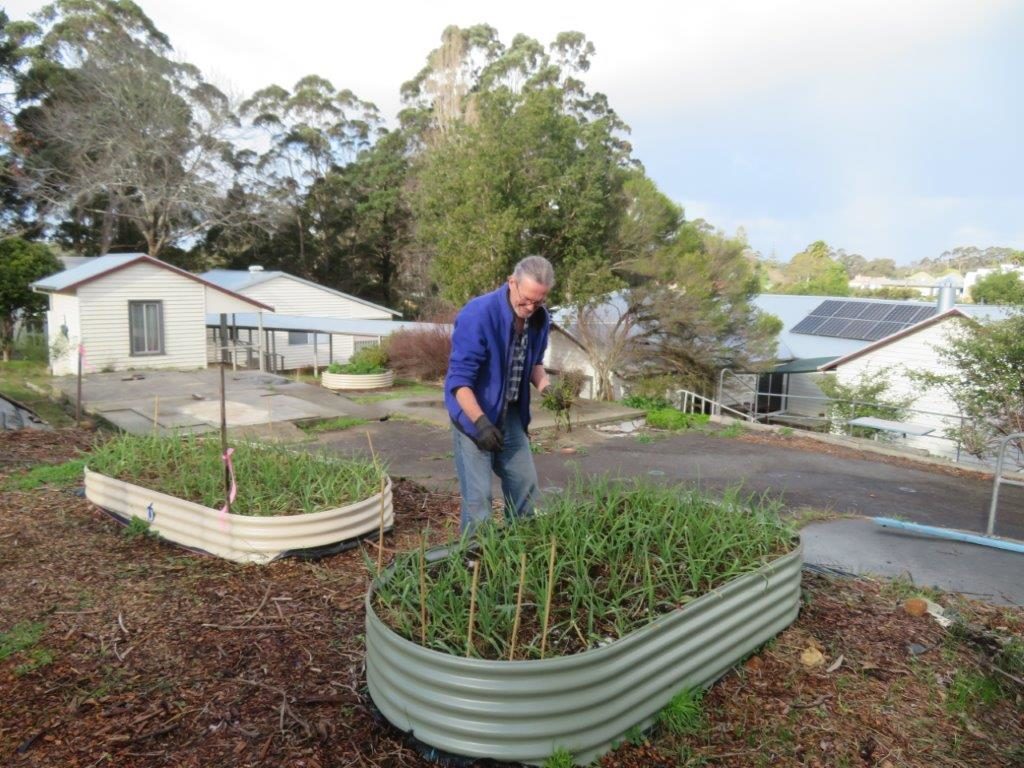
Campbell communicating with the garlic in the DCG (Denmark Communitarian Garden)
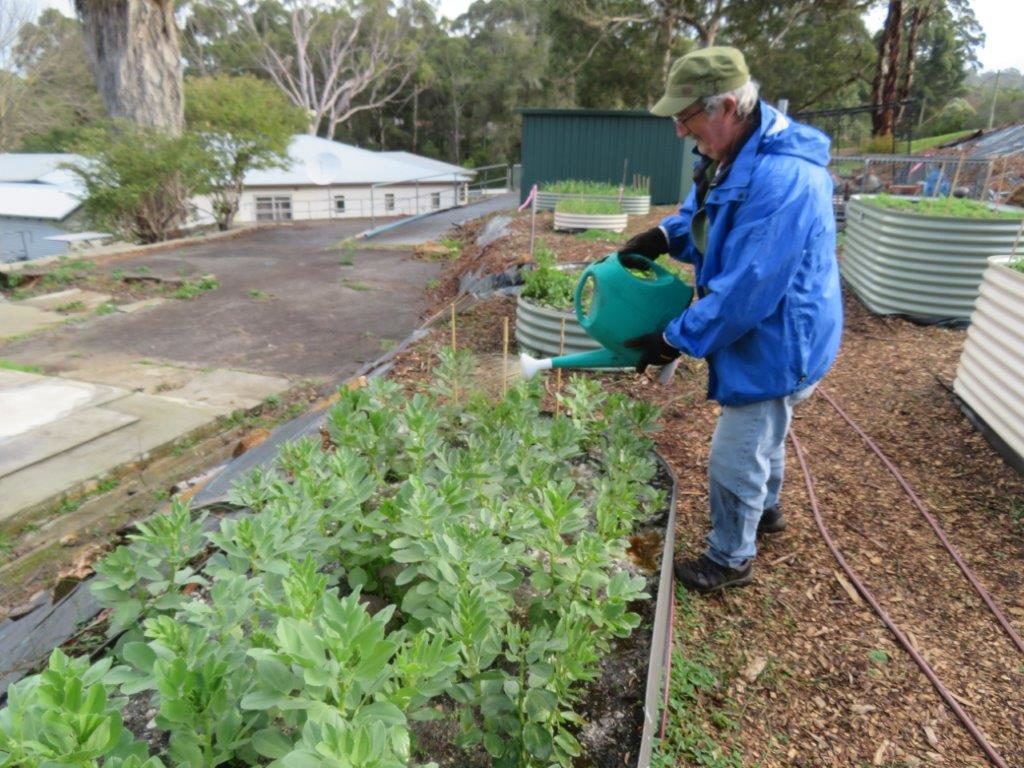
Greg communicating with the broad beans
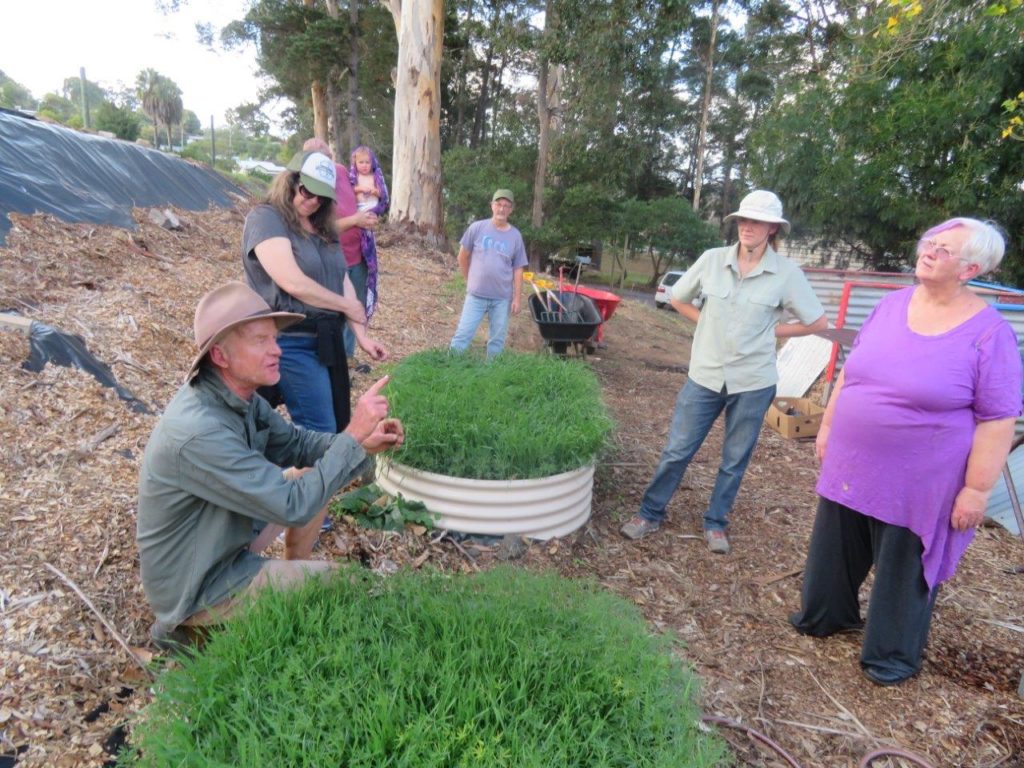
Neal, Gloria and other garden enthusiasts
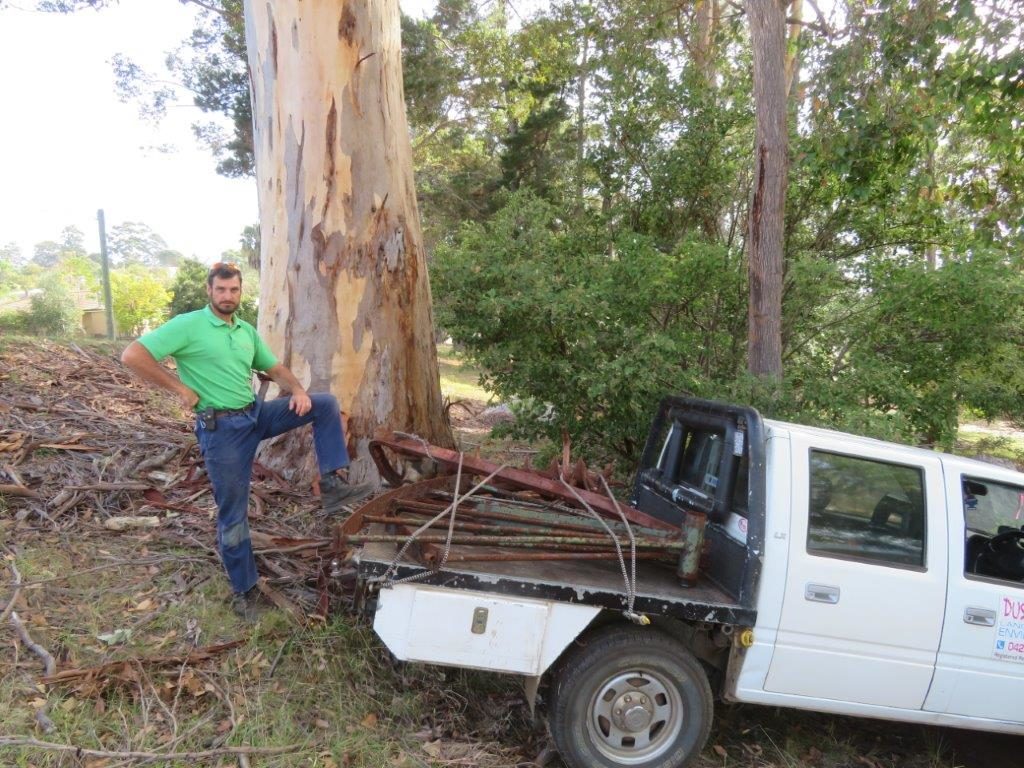
Carl, another legendary community supporter, who never fails to lend a hand
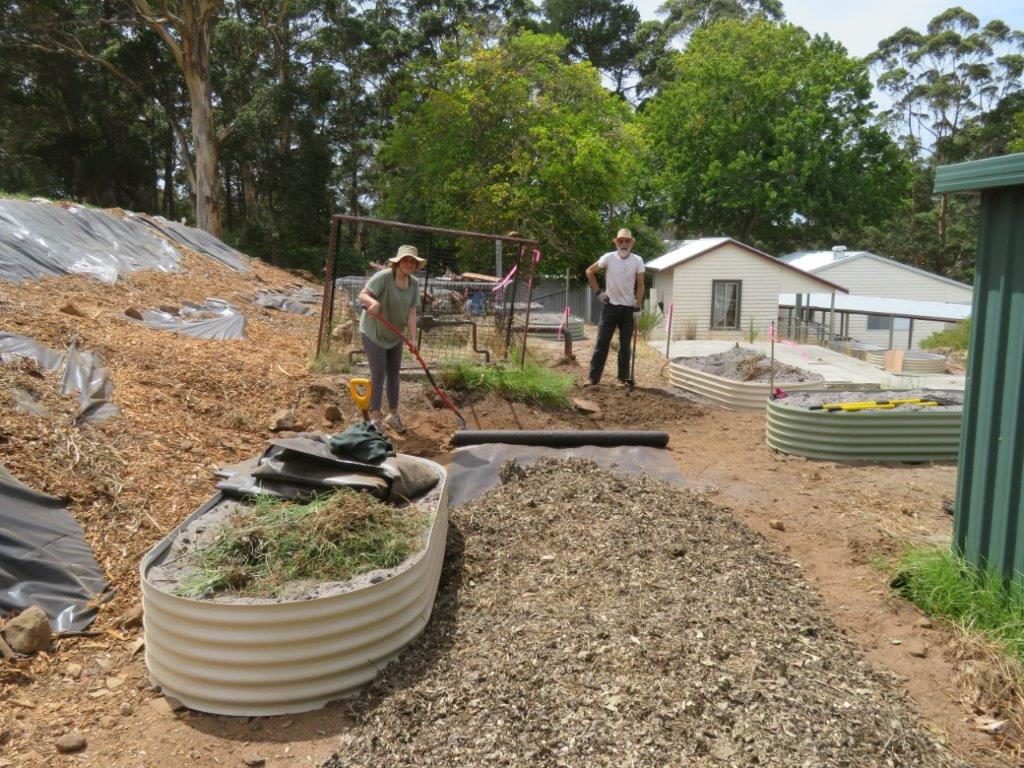
Thanks to all the Wwoofers who give so generously to the places they volunteer, in this case the Denmark Community Garden
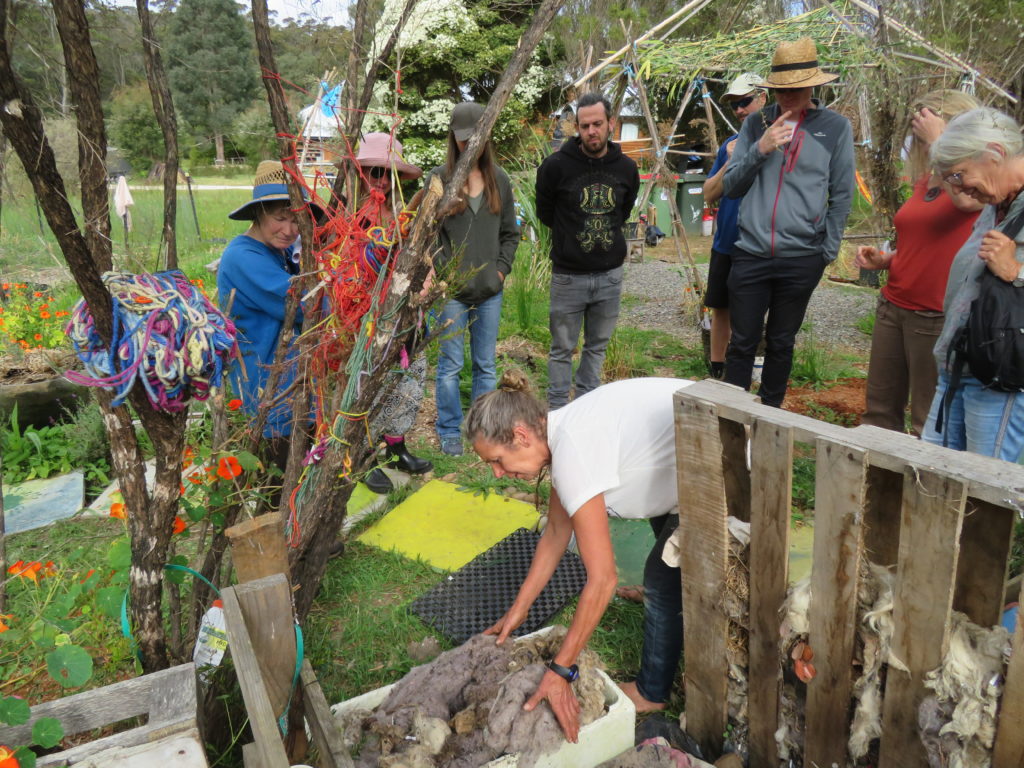
Kristi, in her element at the Golden Hill Waldorf School.. winning Gold at the Waste Minimisation Olympics and another unsung community heroine
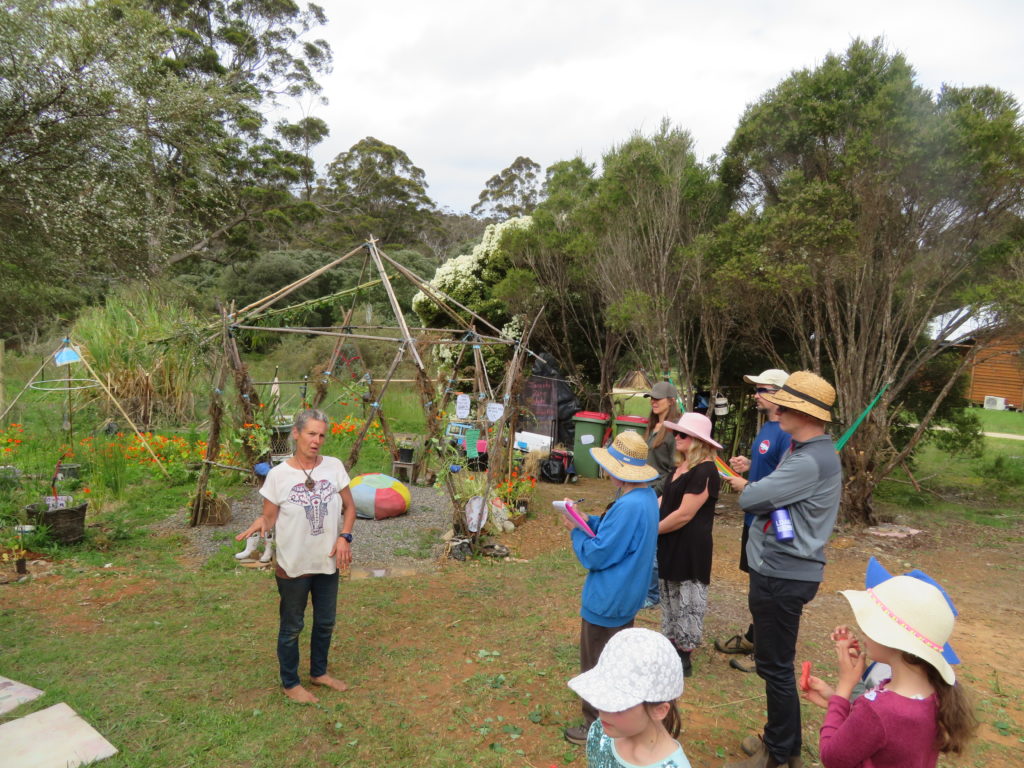
Kristi in composting action
by Basil | Jul 31, 2019 | Green Skills Inc. - Sustainability Non-Profit
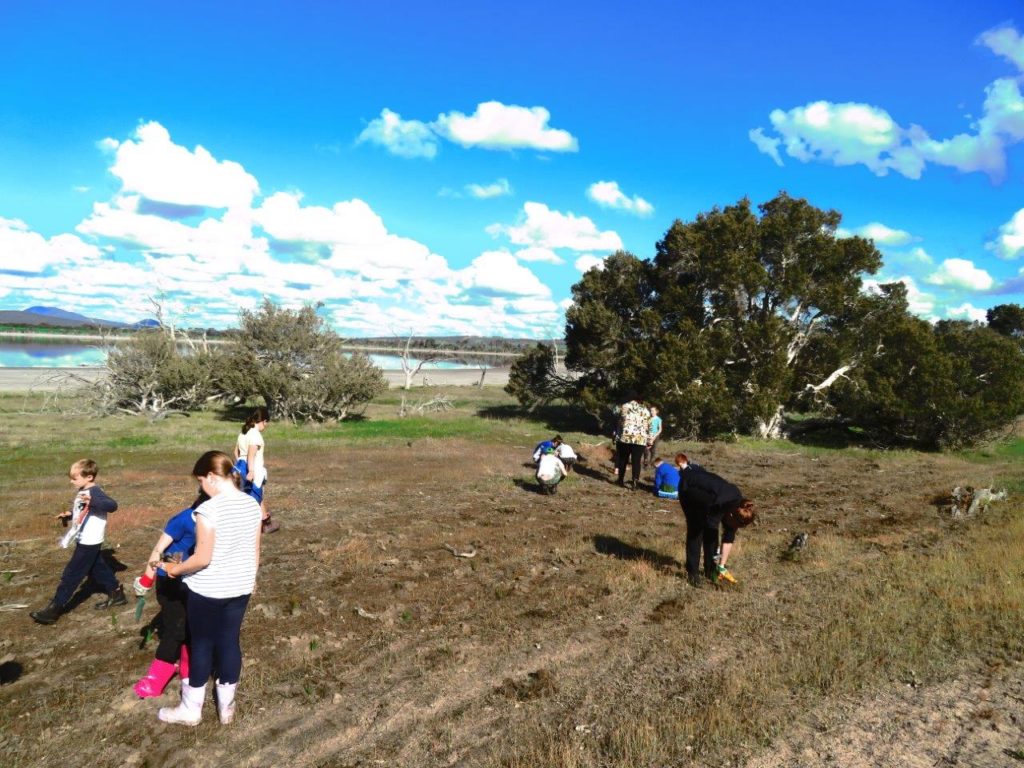
Cranbrook School Tree Planting Outing to Tom South Lake – Tuesday 30th July 2019
Cranbrook Primary School Tree Planting Event Links Students to Landcare
The Cranbrook School Tree planting day held on Tuesday 30th July at Tom South Lake went well. Green Skills coordinated the provision of local native plants grown in the Katanning Landcare nursery, and guidance for the students on the day
The Gillamii Centre and the Shire of Cranbrook provided assistance in terms of planning and site preparation.
Forty or so students accompanied by several teachers and supporting adults from the Cranbrook Primary School participated in planting and watering around 1100 local shrubs and trees around the fenced off edge of the lake foreshore. Thanks also to the Jones and Williamson farming families for providing permission and support for the plantings. . This landcare project has been supported by the Koorabup Trust, Green Skills, Gillamii Centre, Shire of Cranbrook and the Cranbrook Primary School.
For a number of years bird enthusiasts including Steve Elson from Ongerup and others from BirdLife Australia have been surveying the birdlife of Tom South Lake, noting that it is an important haven for shorebirds including the threatened Hooded Plover, In 2018 Green Skills and the Gillamii Centre organised support for a 3.7km fence to be built protecting the foreshores of this lake from sheep grazing.
Last summer, it was noted that Hooded Plovers were breeding on the edge of the lake, the first time in years. The proximity of this lake adjacent to the main road between Cranbrook and Katanning makes it an ideal demonstration site to promote lake conservation to the broader Great Southern farming community.
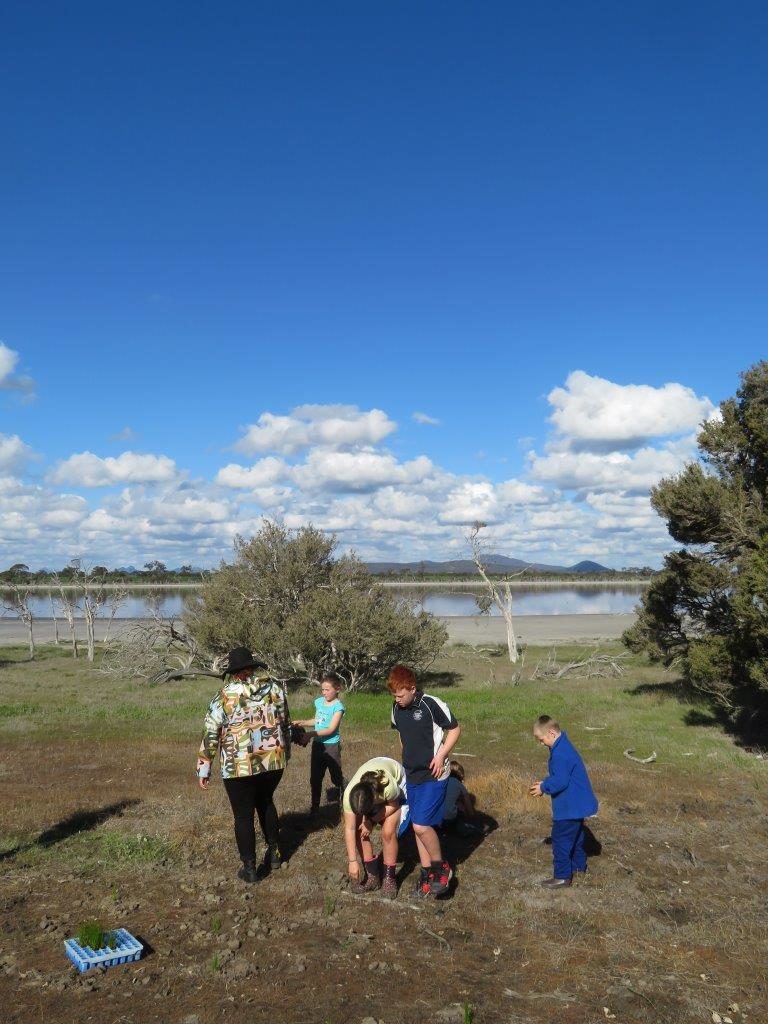
Cranbrook School tree Planting Outing to Tom South Lake – Tuesday 30th July 201


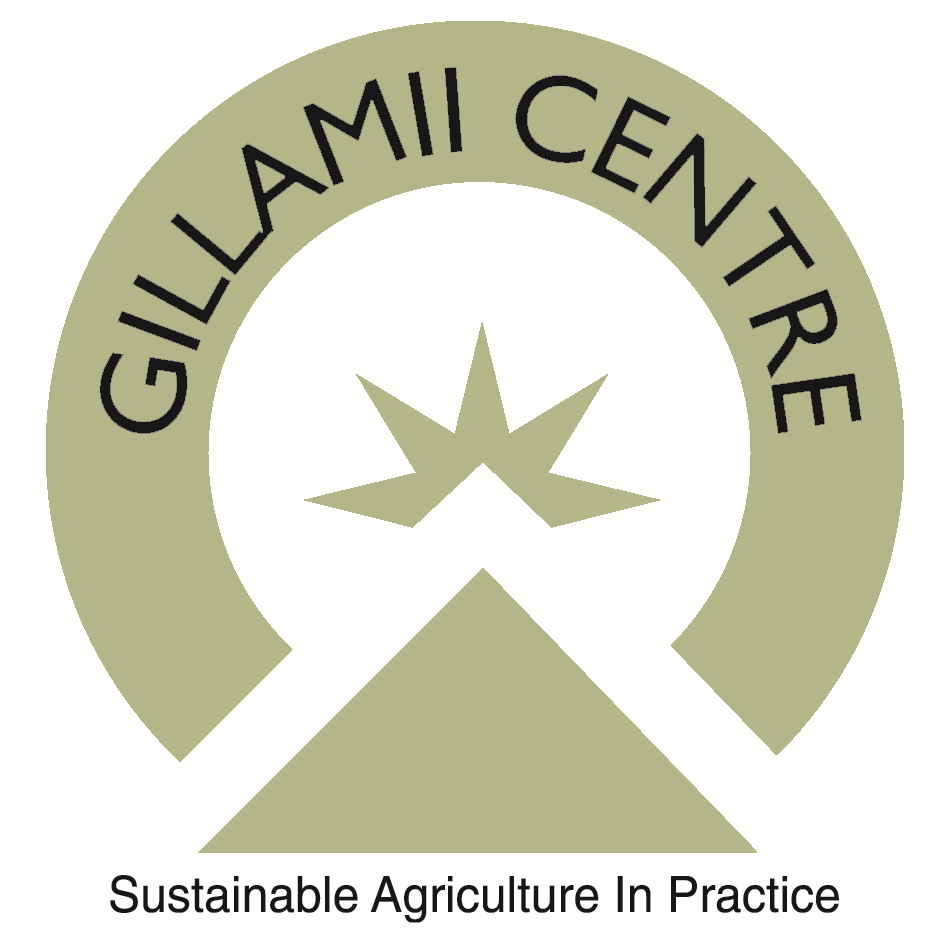
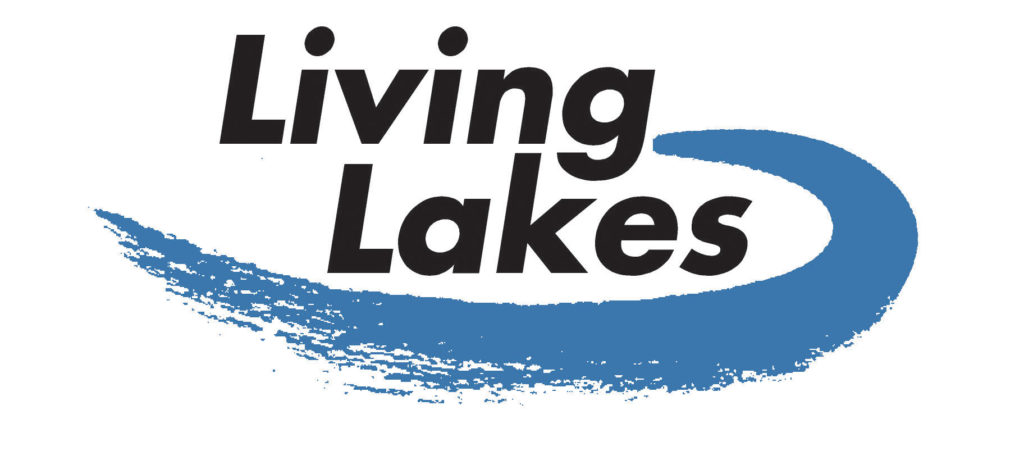
by Basil | Jul 22, 2019 | Green Skills Inc. - Sustainability Non-Profit
Learning is Fun at the Denmark Community Garden
At the Denmark Community Garden workshop on Saturday 20th July, local garden expert, Neal Collins, shared his knowledge on how to grow fruit bearing trees and bushes.
Twelve people attended the event, held at the newly established Denmark Community Garden, which is a collaborative project between Green Skills and the Denmark CRC.
People interested in joining workshops and other activities at the Garden can register with Green Skills Denmark .. email at [email protected]
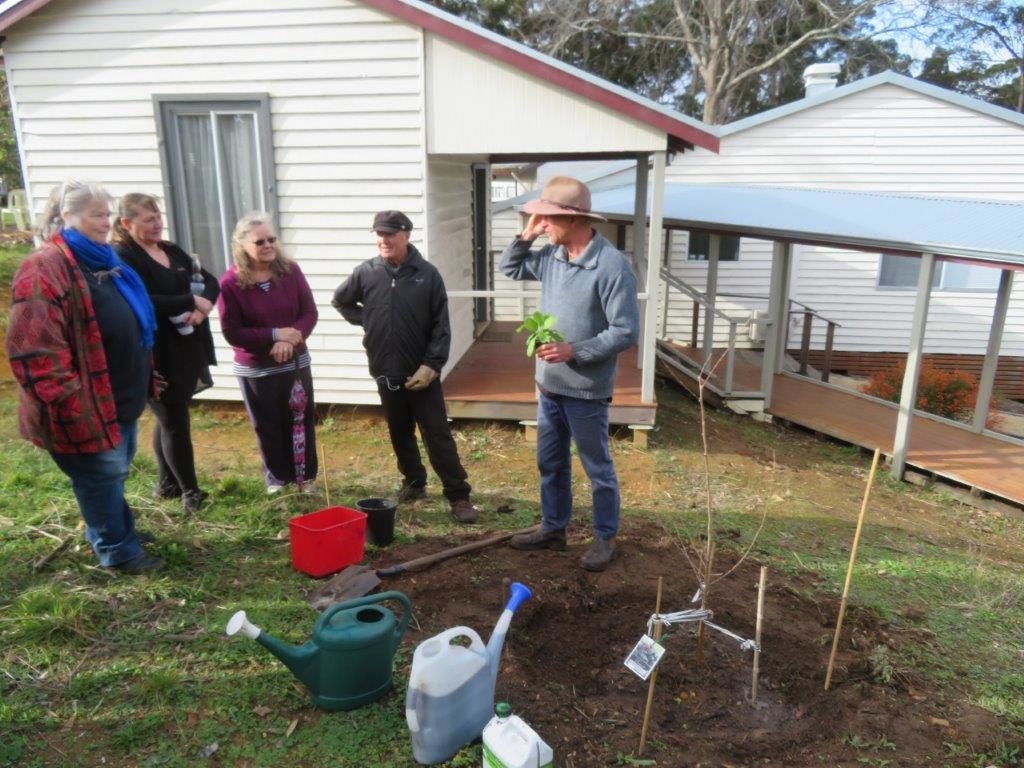
Neal Collins demonstrating helpful tips on how to plant a Mulberry at the Denmark Community Garden.
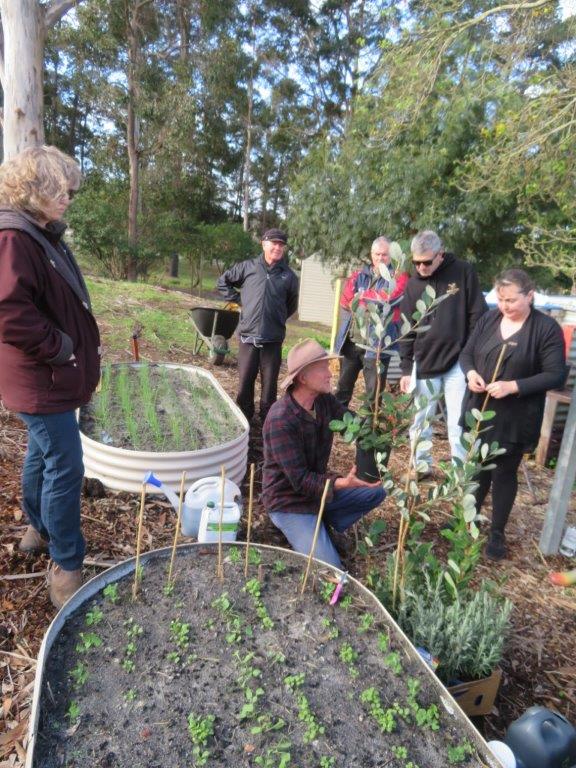
Preparing a range of bushes and herbs for planting at the Denmark Community Garden
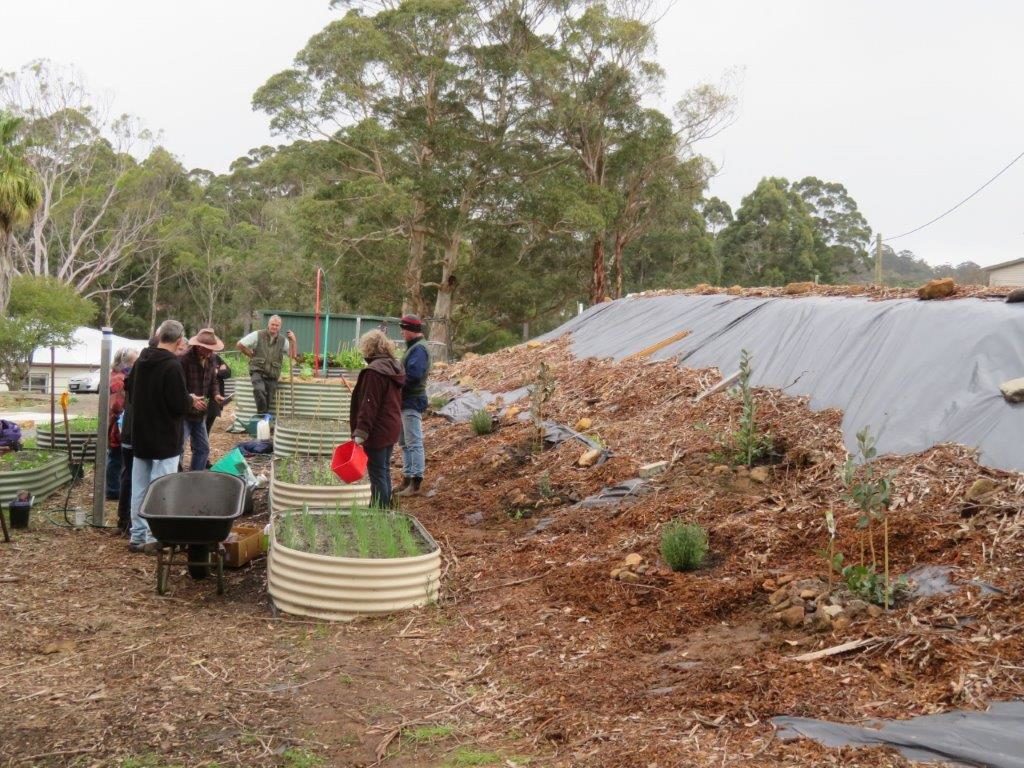
The new Denmark Community Garden coordinated by Green Skills slowly taking shape
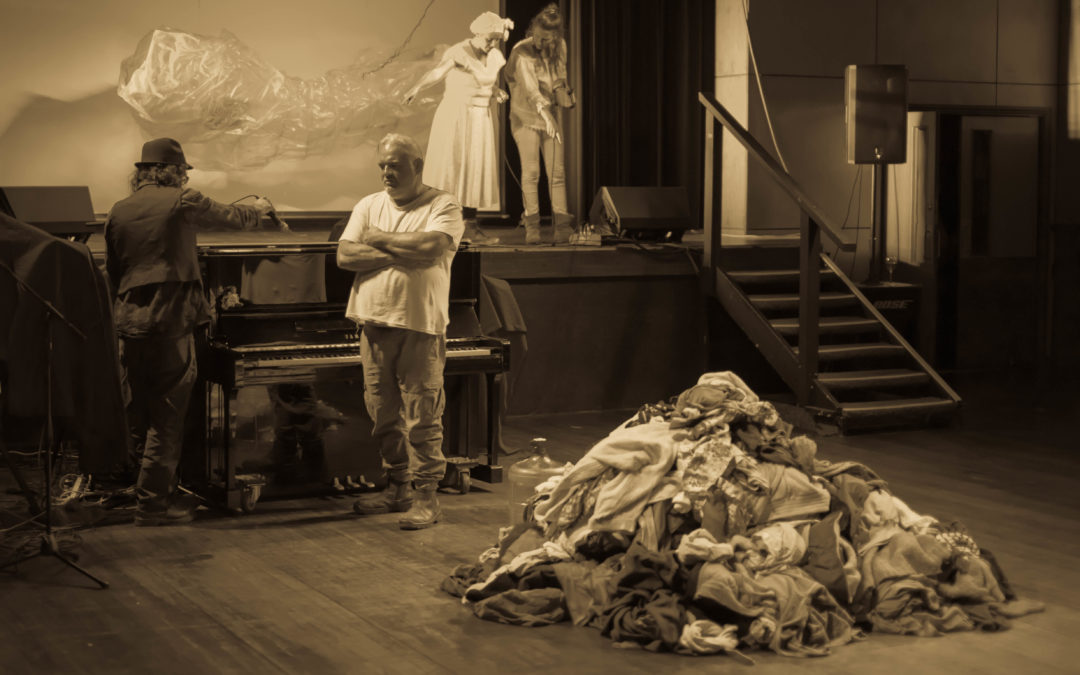
by | Apr 25, 2019 | Green Skills Inc. - Sustainability Non-Profit
What an amazing weekend. Thanks to everyone who was involved in making it happen. All that hard work payed off it was spectacular. Friday night we had our “Possible Futures, Waste reduction Discussion Panel” which was the start of many more discussions and the fashion parade to end all fashion parades. Slow fashion never looked so good. The Tip Shop DJ finished off the night with all our favorite Tip Shop records Saturday night Harry Jakamarra and Elwood Grey’s captivating performance is one i’m glad i was there to witness. We have some ineradicable photo’s from Carbon Element our contemporary dance night exploring the dark side of waste through dance and experimental found object music. Sunday night we had Denmark’s first showing of “Well Weathered Piano” a film by local film maker Robert Castiglione. The film explored ruin and decay of old piano’s with experimental improviser/ composer Ross Bolleter. And that’s just the night time events.
The day time Saturday and Sunday Not Waste Bizarre and morning workshops were a hive of activity. Ali Marshal had an endless stream of people wanting to learn how to repair there bikes including one couple who just turned up on bikes to go to the library and Ali serviced there bikes while they were there. Luca Gentle’s Nurf Gun Moding workshop was by far the most popular. At no time did i see less than 10 kids hard at it learning to dismantle, repair and modify there Nurf Guns.Rob Gulley & Brenda Conochie’s workshop 3 ways to turn Foodscraps to Fertiliser was a great success great information that will definitly help people to better reduce waste. As always Plastic Reduction Denmark were hard at it producing more planet friendly shopping bags.
None of this could have happened without the help of Denmark Shire (who donated the use of the Civic Centre) Denmark Arts (who donated the use of thier projector and lights), Denmark Community Resource (for the use of their projector), Denmark Upcycle Collective, and Green Skills/ Denmark Tip Shop for financial support putting this event together. Also a huge thanks to Freehand Wines and there amazing food wine and Boston Brewery’s beer. So great to be a part of such an supportive and environmentally conscious community.
Look out for more events soon.
See you there


























